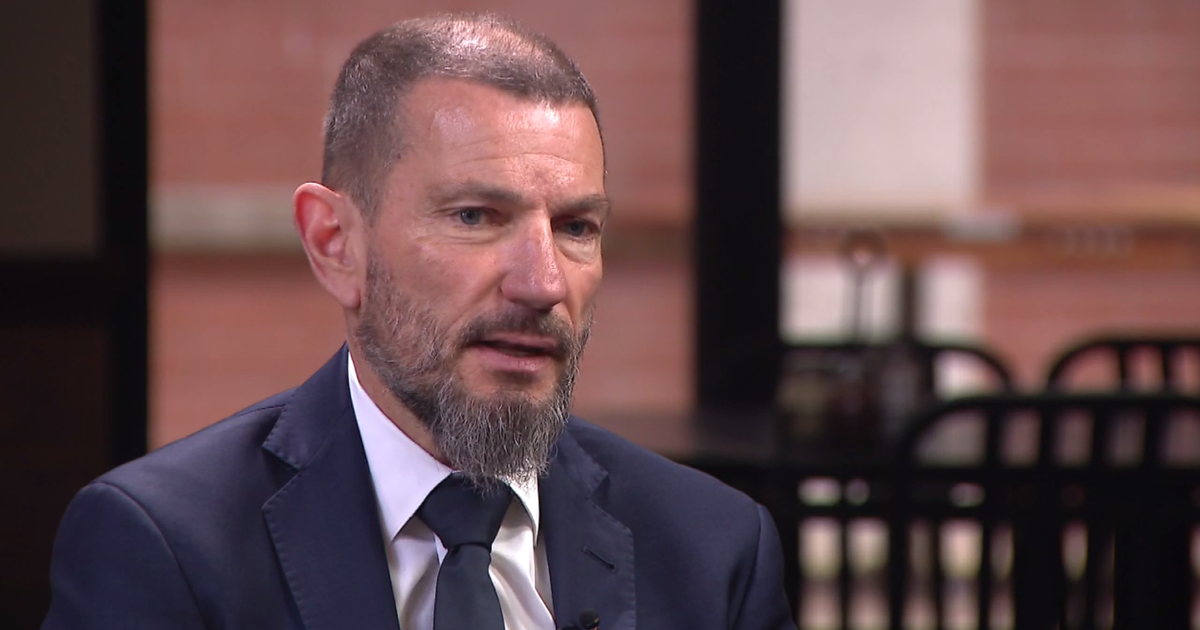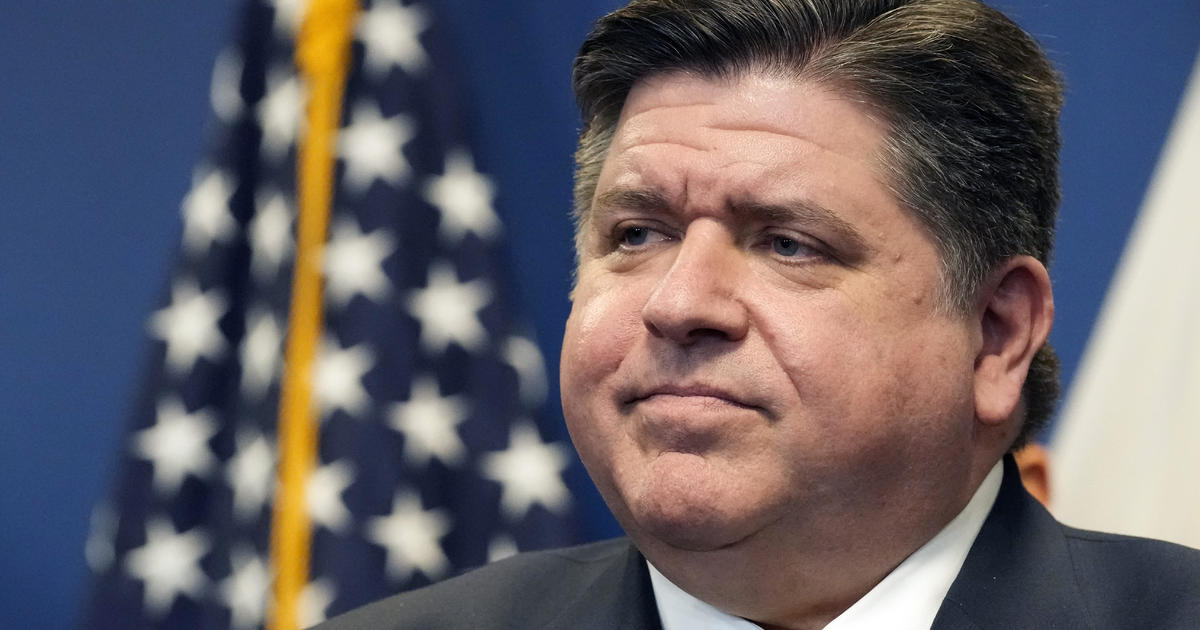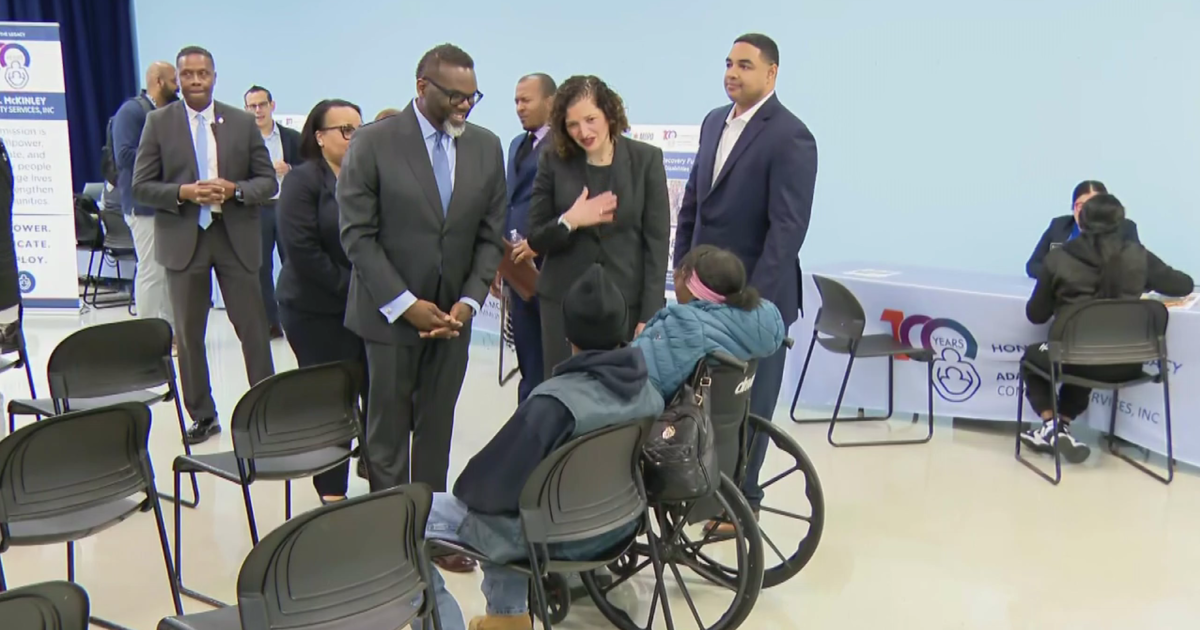Mayor Lori Lightfoot Projects $700 Million Budget Deficit This Year Due To COVID-19
CHICAGO (CBS) -- With tax revenue plummeting due to most Chicago businesses being closed for nearly three months, due to the coronavirus pandemic, Mayor Lori Lightfoot said the city is facing an estimated $700 million budget deficit this year alone.
"That's a sobering number, and it presents a sobering challenge any way you look at it," Lightfoot said Tuesday afternoon at City Hall.
To put the massive budget shortfall in perspective, it's just short of the record $838 budget deficit Lightfoot faced when she took office last year. Last fall, the City Council passed the mayor's plan to balance that budget without a significant property tax hike or layoffs by relying a mix of one-time revenue sources and smaller targeted tax increases.
Now the mayor is almost back to where she started, and that's not even counting what the city will face for next year's budget. It means Chicago and its residents need to prepare for a rough financial ride.
Lightfoot said, while many businesses are now reopening under Phase 3 of the statewide "Restore Illinois" plan, the city will continue facing "significant budgetary challenges" this year.
"Nothing about this moment that we are in is ordinary or easy, and that's been true since COVID-19 came to Chicago," she said. "As we move forward we will continue to be guided by our values of equity, inclusion, and transparency in everything that we do, whatever challenges we face."
The mayor said all options, including a possible property tax hike and layoffs, must remain on the table to address that budget shortfall.
"In this reality, the last thing that I want to do is raise property taxes. Now, I can't take that off the table, but it is truly the last thing that I want to do," she said.
Ralph Martire, executive director of the Center for Tax and Budget Accountability, said he believes the mayor is right in saying she can't rule out anything when it comes to trying to right the financial ship in the next year.
Lightfoot said she is consulting with Budget Director Susie Park, City Comptroller Reshma Soni, Chief Financial Officer Jennie Bennet, and the City Council on options for cutting costs before turning to tax hikes or layoffs.
"We will need all of these voices, and yours, and more, as we work to tackle the significant and widespread financial challenges related to COVID-19, which are immense," the mayor said.
The deficit could balloon to $1.2 billion by the time the City Council must prepare a budget for next year.
"There's a lot of ifs looking into the 2021 budget year, and I don't think that there's a simple solution available to the city," Martire said.
Lightfoot said the city will try to use $100 million in added savings from a debt refinancing program to help plug the hole in the budget, and will likely seek more refinancing down the line, as well as push off some projects to later years.
The mayor said the city has seen a steep decline in tax revenue over the last few months; particularly from hotel taxes, restaurant taxes, amusement taxes, and parking fees. Sales taxes and convention taxes also have taken major hits, with so many businesses closed for the past few months, and trade shows forced to cancel expositions at McCormick Place due to the virus.
"It's not just the businesses themselves being closed, it's the workers having little or no income to spend then on themselves, and to take care of their needs, and further support other businesses," she said. "The rug has been pulled out from under us because of the massive impact – not just on restaurants, hotels, service industry – every single business has had impact. There are very few that have been thriving."
However, she said it's still unclear how the city's economy will begin to recover as more businesses reopen in the coming weeks and months, so it's unknown how tax revenues will rebound.
One of the city's biggest budget items in the $11.65 city budget is the Chicago Police Department. Lightfoot has said defunding the Police Department as part of reforms is not on her radar, but what about some adjustments for budget reasons?
"I can't imagine that there wouldn't be a very fine-toothed comb taken to the city of Chicago's police budget, but the police budget isn't the only one that's going to be looked at closely," Martire said.
Lightfoot said, while the city is expecting about $1.3 billion in federal funding from the Coronavirus Aid, Relief, and Economic Security Act, she noted that money is meant to pay for the city's response to the pandemic, not to solve the city's budget shortfall. The CARES Act requires the funds to be used for specific programs, and the mayor will be seeking City Council approval to spend $1.13 billion from CARES Act grants.
According to the mayor's office, that CARES Act funding will go toward:
- $376 million in relief for operations at O'Hare and Midway airports;
- $410 million for direct COVID-19 response costs;
- $189 million for public health response costs;
- $40 million toward homeless services;
- $35 million for small businesses;
- $16.5 million for housing assistance;
- $11 million for community healthcare infrastructure;
- $10.5 million toward senior assistance;
- $10 million for workforce assistance programs;
- $10 million for mental health services;
- $10 million toward violence prevention;
- $5 million toward broadband programs;
- $4.5 million for food assistance;
- $1.5 million for housing for people living with HIV/AIDS
- $260,000 for human services programs;
- $207,000 for domestic violence programs.
The mayor said, despite the significant budget challenges the city now faces, she sees this moment in the city's history as "an incredible moment of hope," given the way people have responded to the pandemic, as well as the growing movement to address systemic racism in the wake of the death of George Floyd, a Minnesota man killed by police on Memorial Day.
"We have lived too long being segregated by race, and accepting that as the status quo; being isolated from opportunity, and leaving too many people feeling like they are trapped," she said. "We must prioritize closing these divides once and for all, and embracing that we have to be in this together. That is not a quaint slogan, but we must figure out ways that we manifest that as a reality in our city everywhere."
The mayor also warned that the city will face significant budget problems next year.
"We're going to have a significant hill to climb there," she said. "We are doing everything that we can to look everywhere to find efficiencies that are clearly tools that we can use."
Lightfoot and Martire said the city's fiscal situation could get worse if there is a COVID-19 surge in the fall, requiring another stay-at-home order. And revenues for the rest of this year and even the next are anything but predictable.
Then there is the city's pension obligation, which is set to rise by $117 million next year alone.



